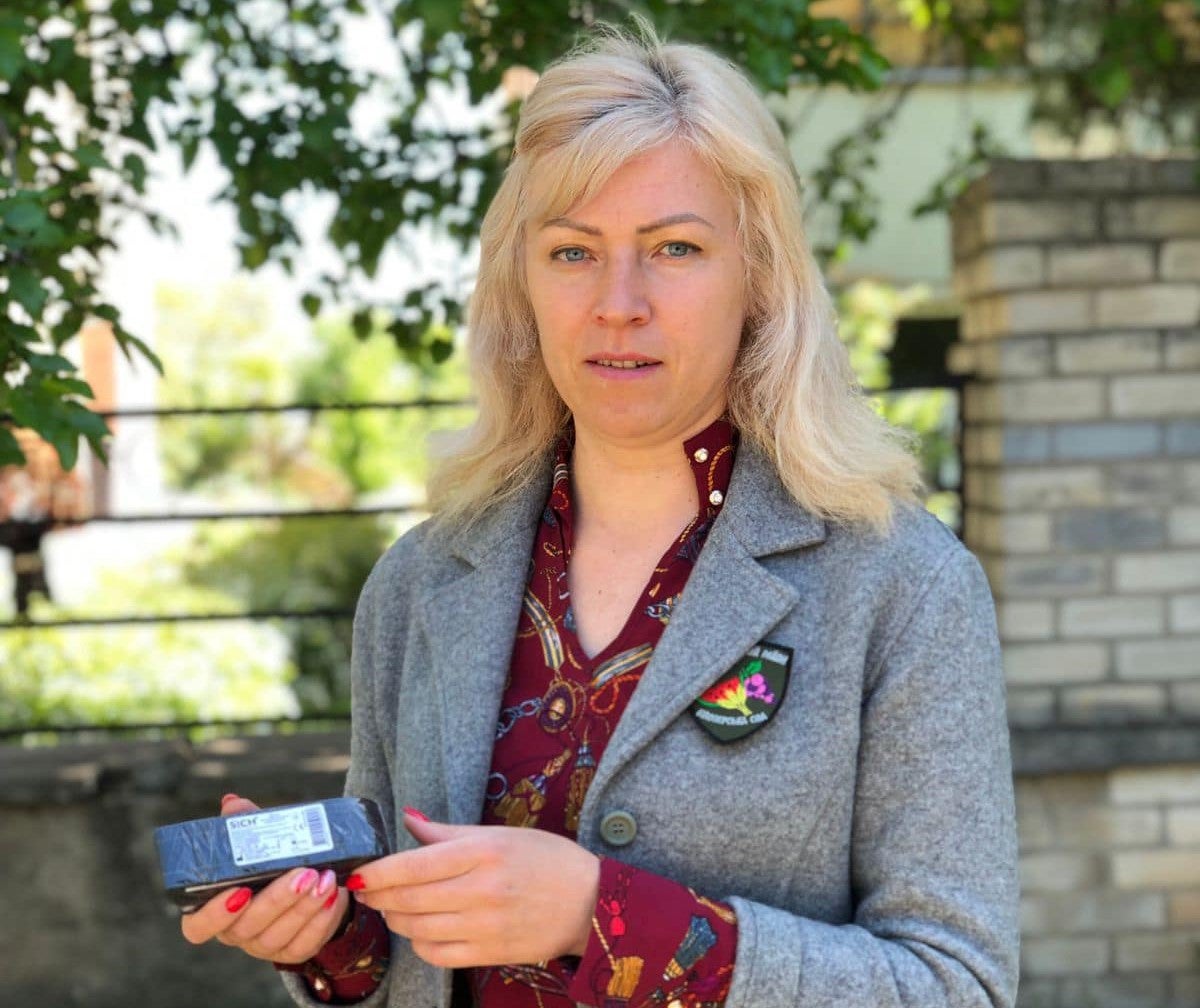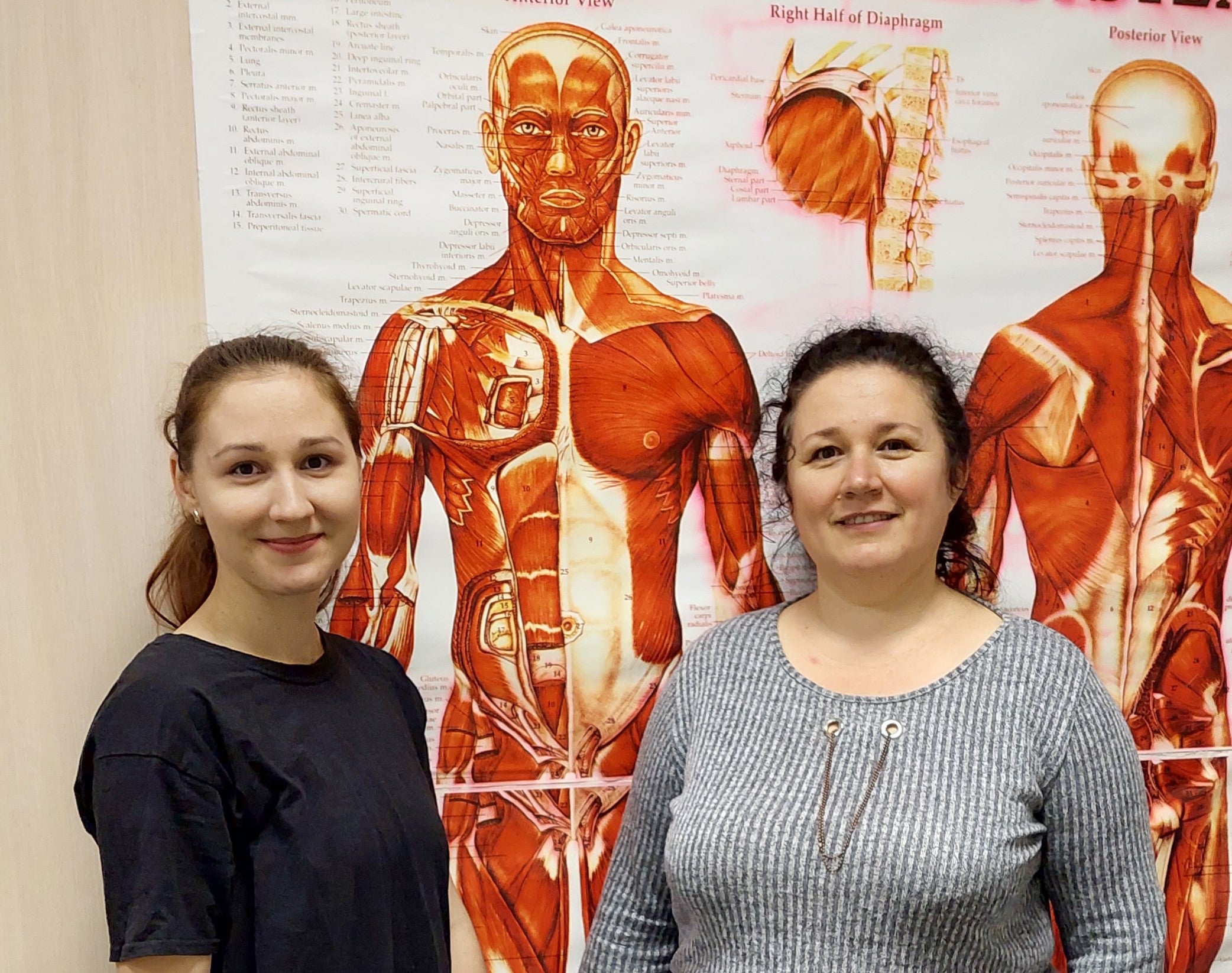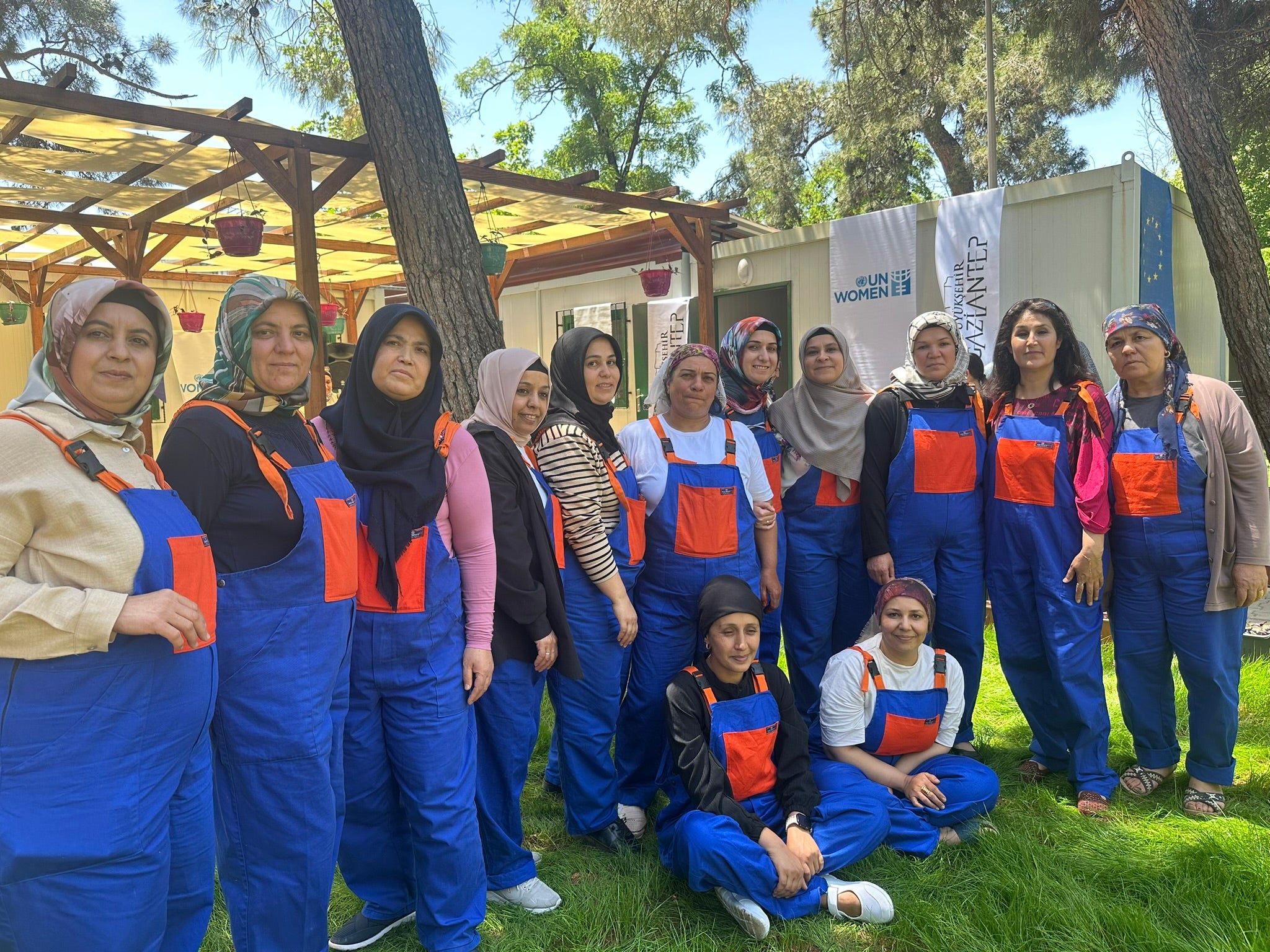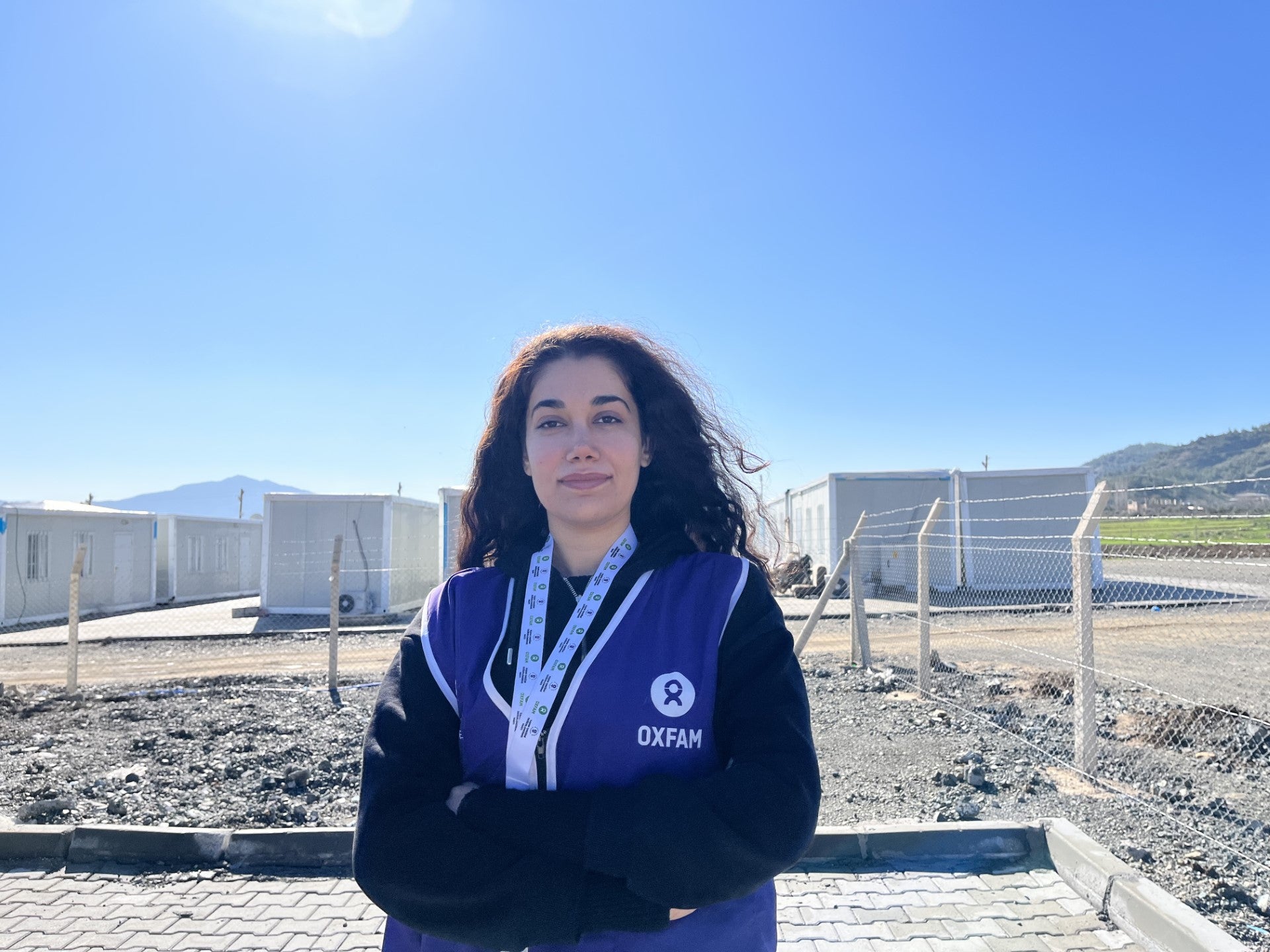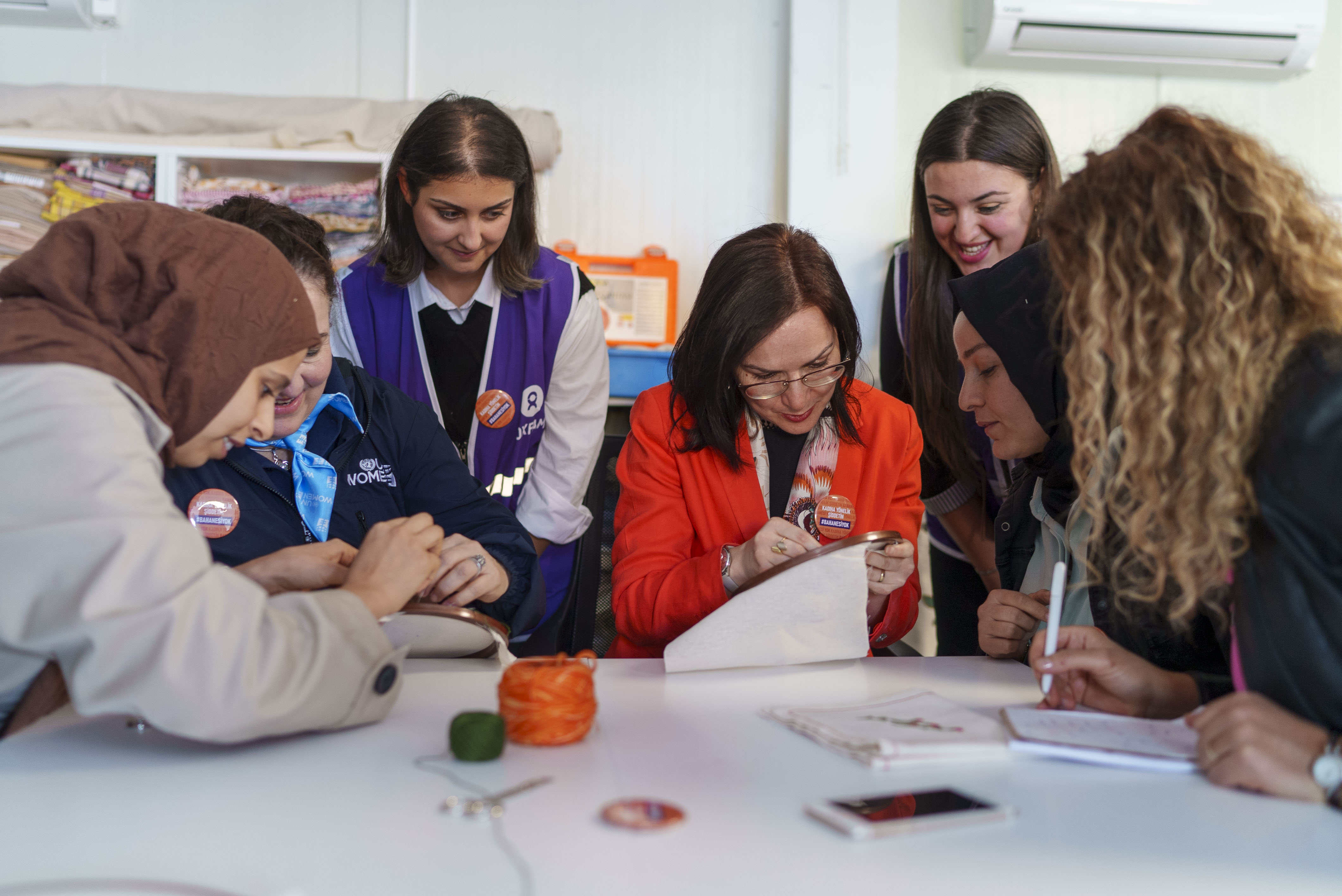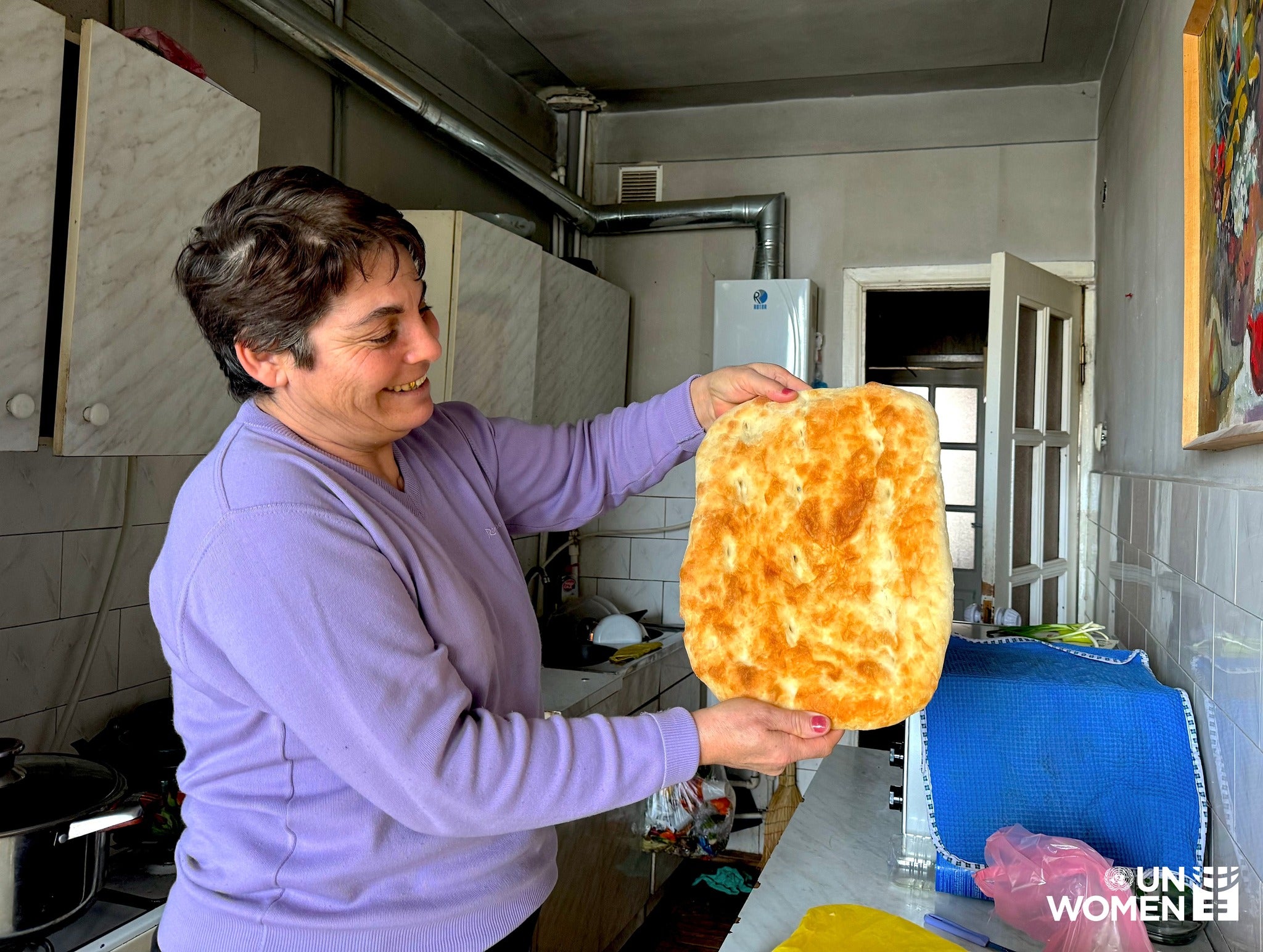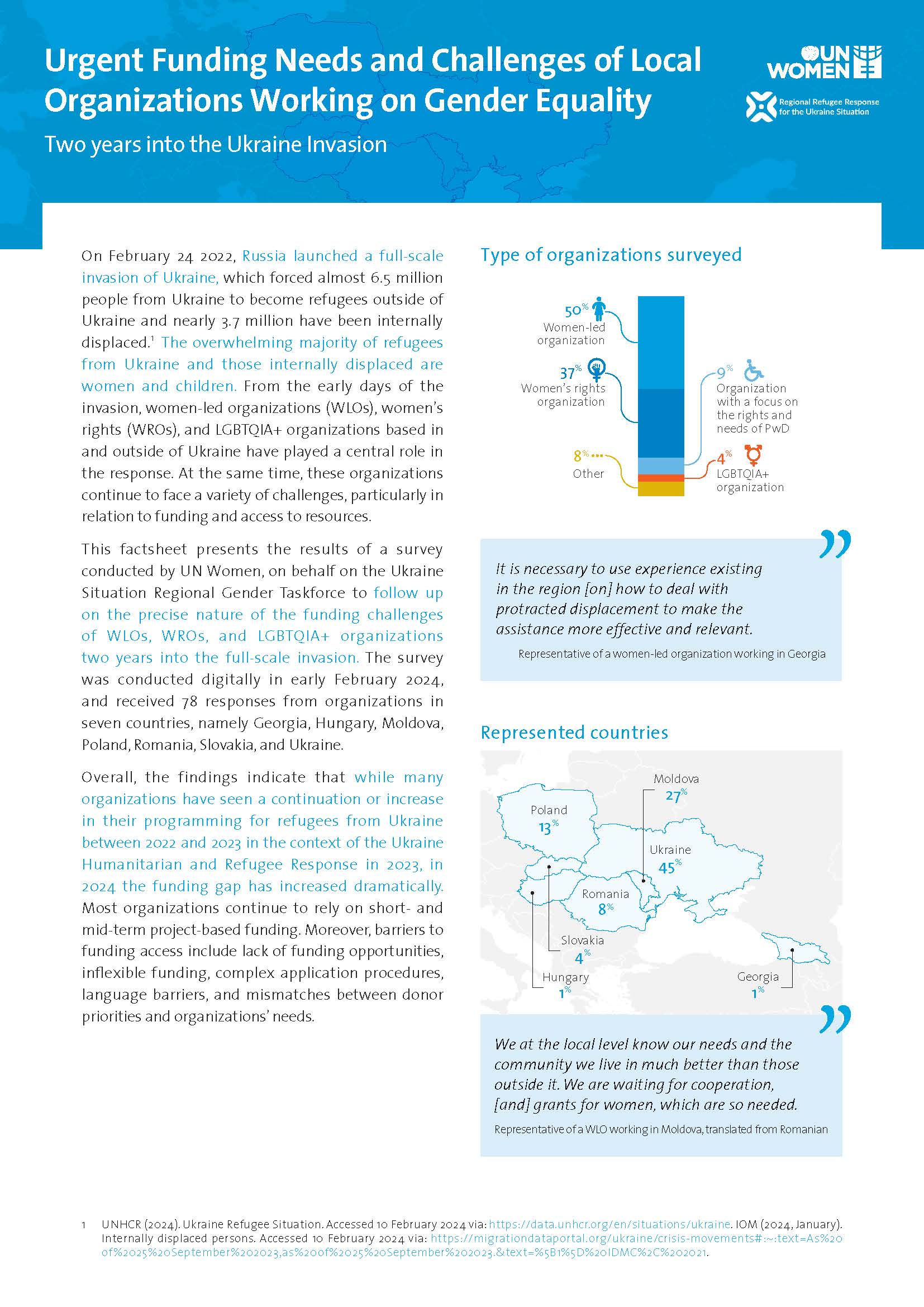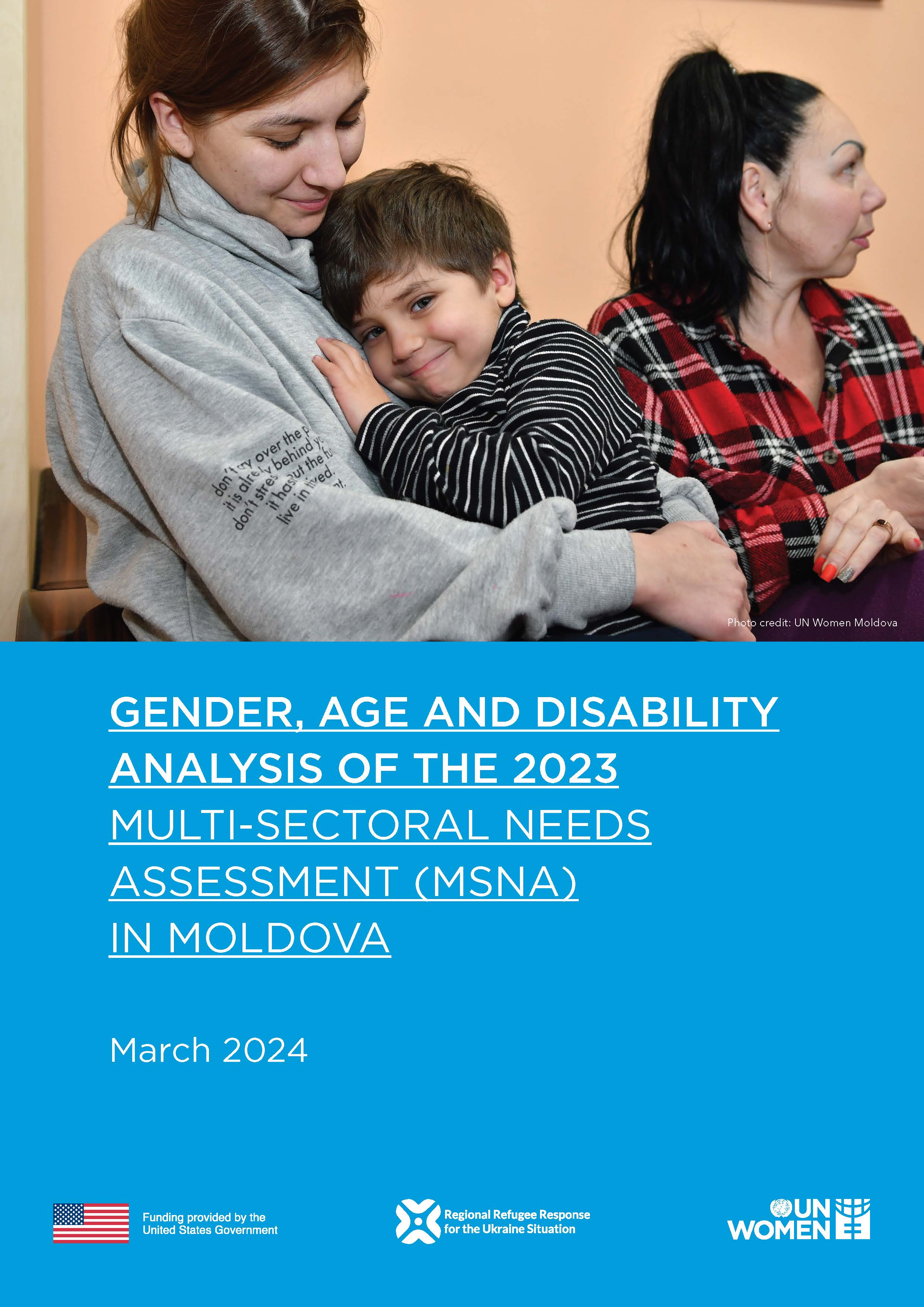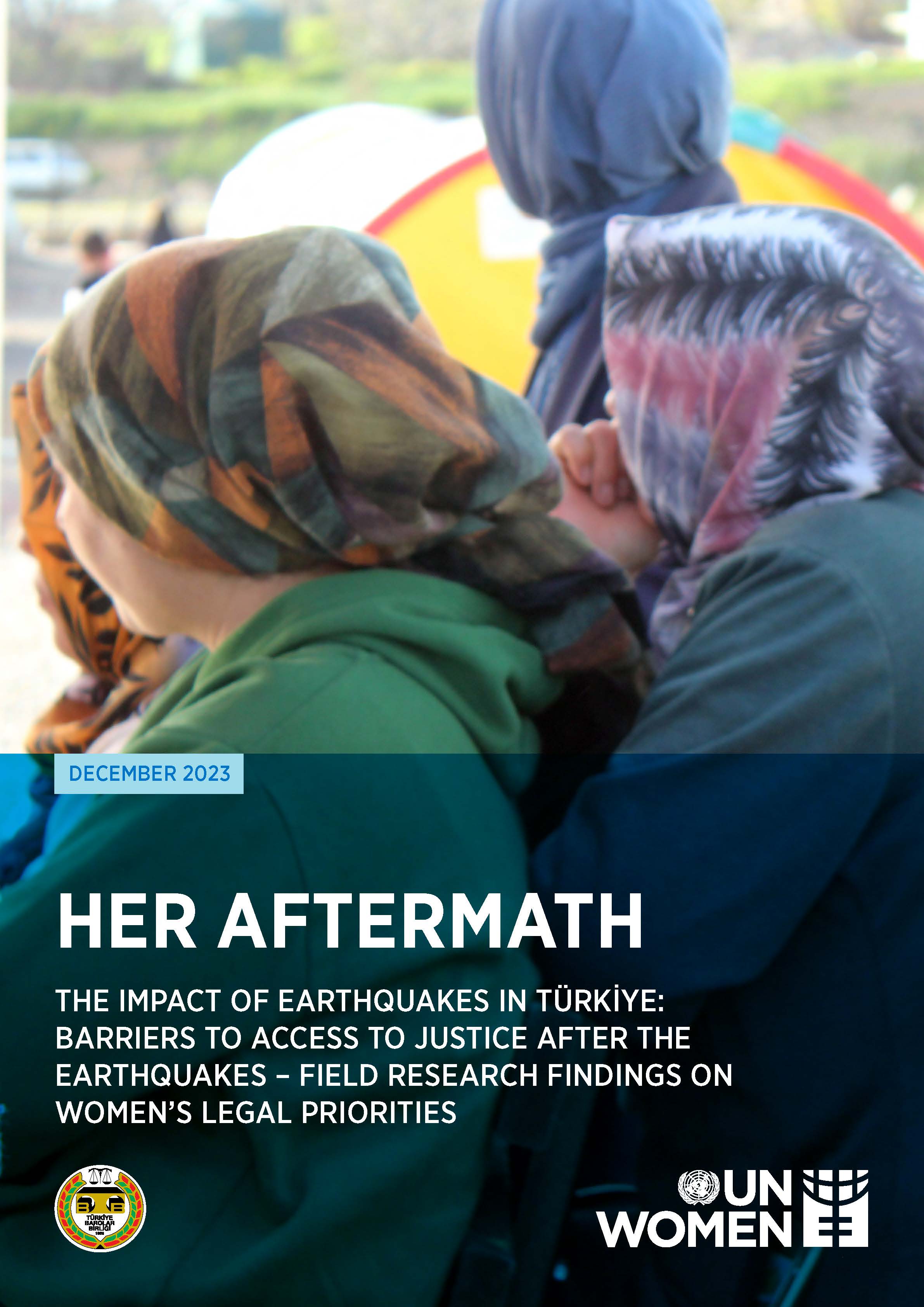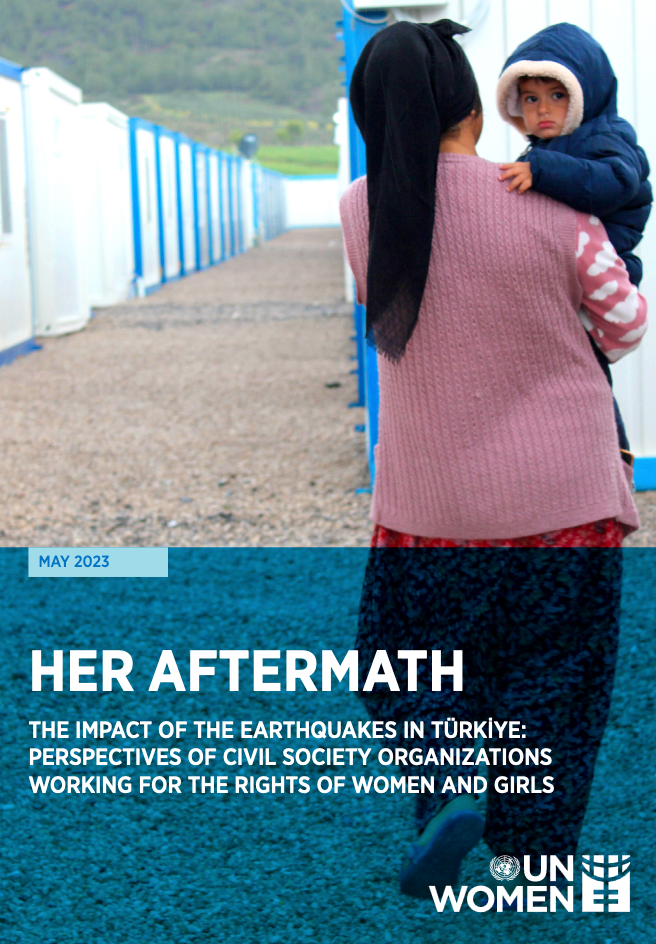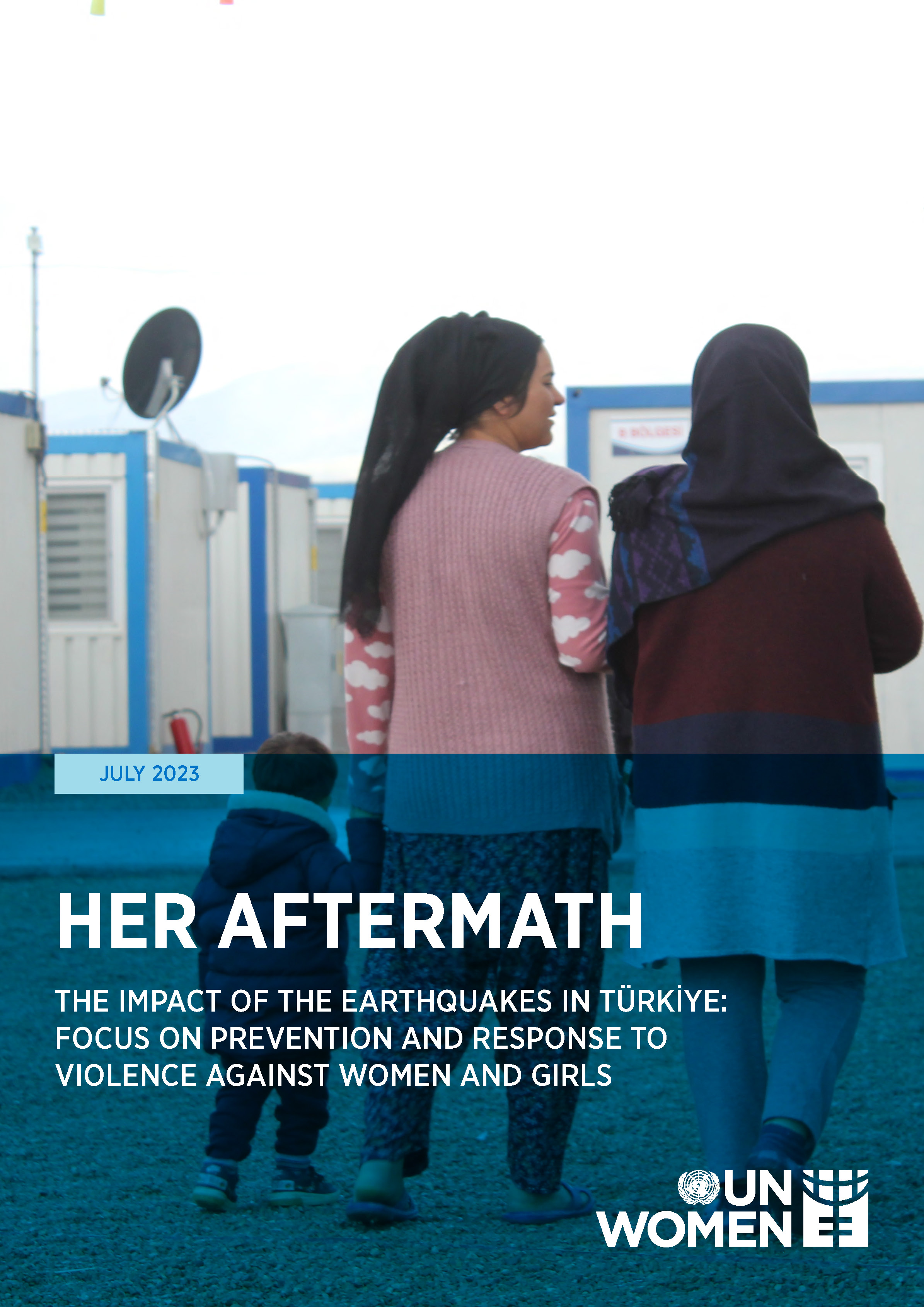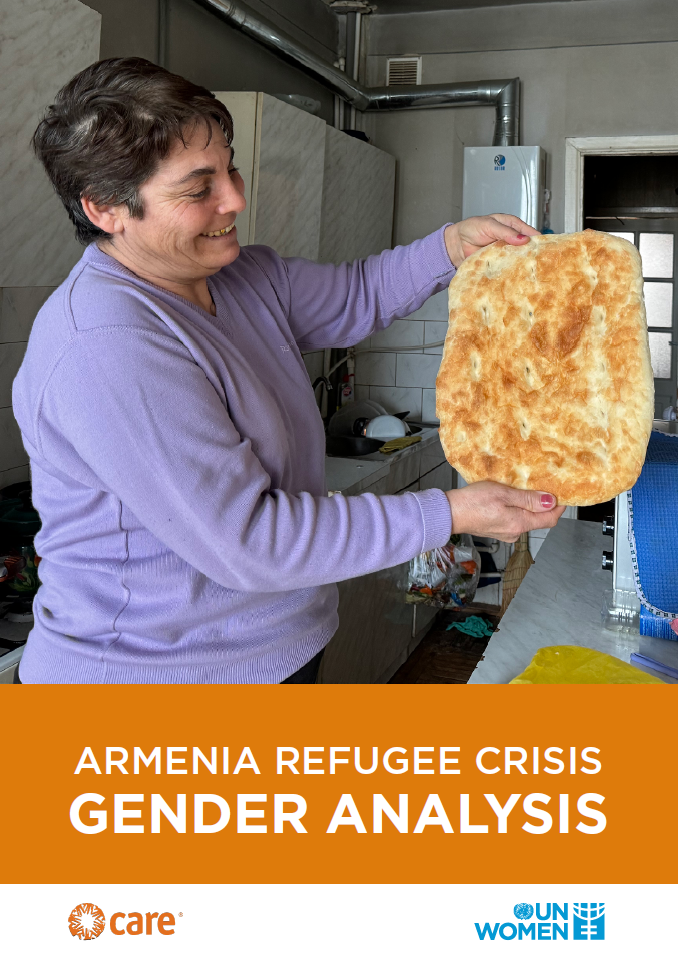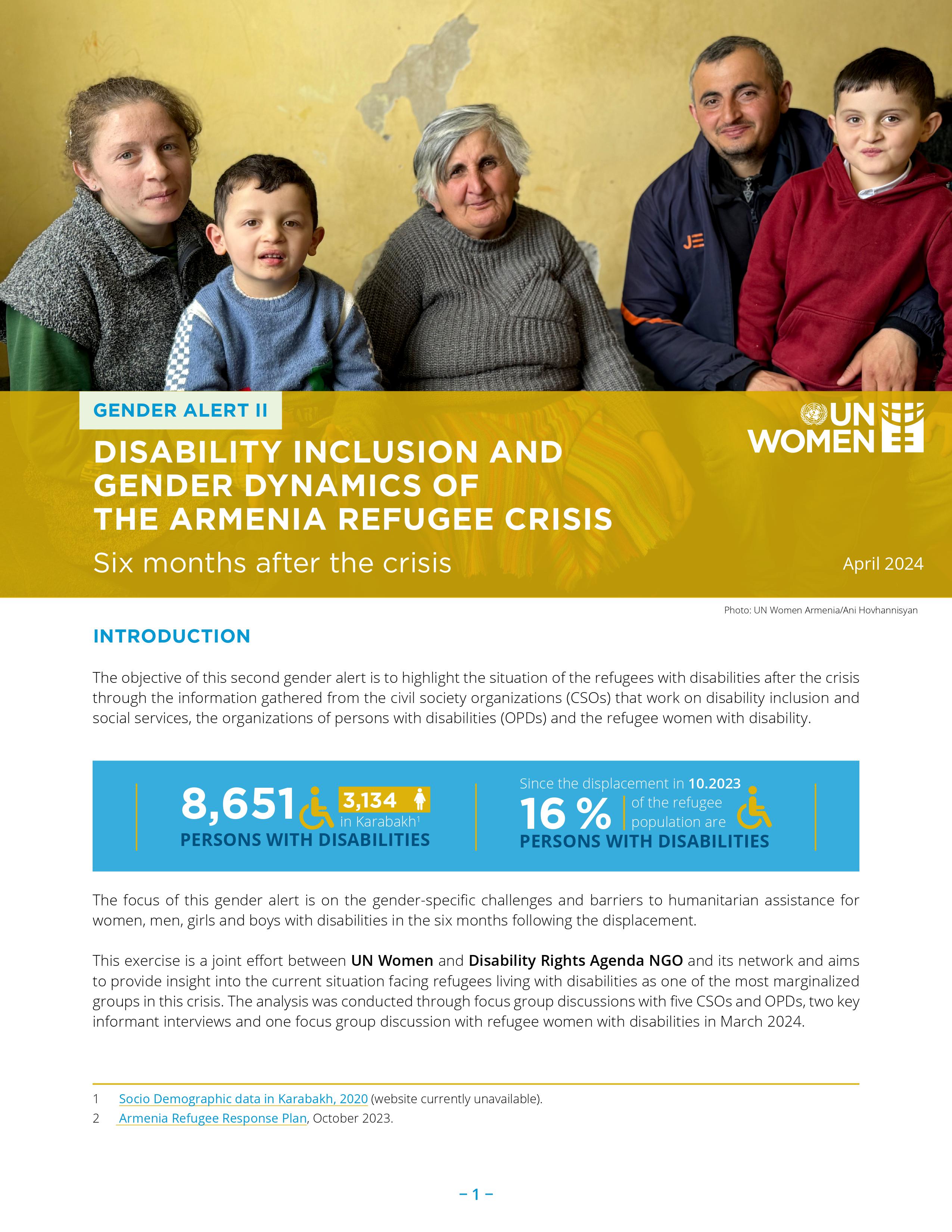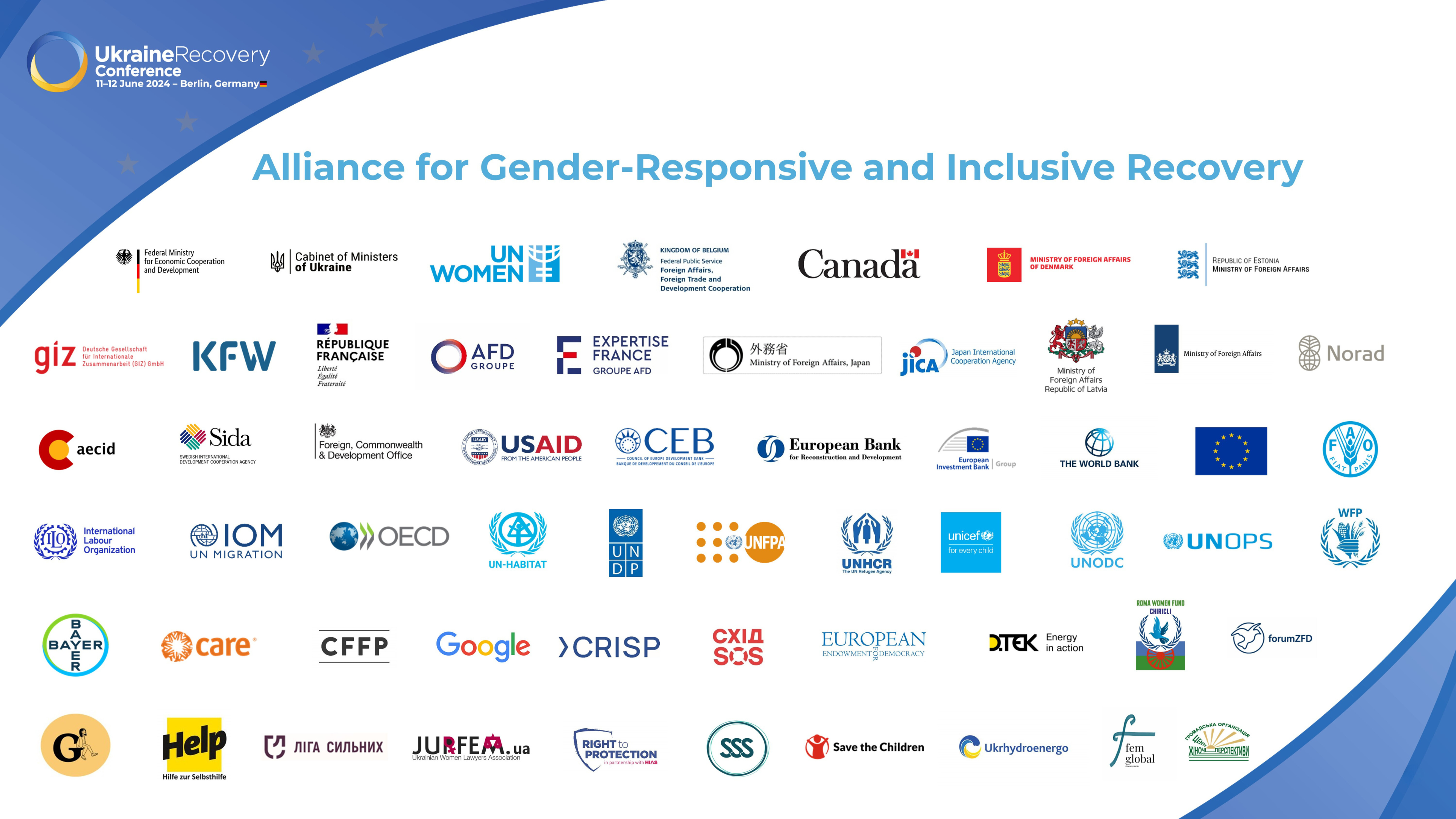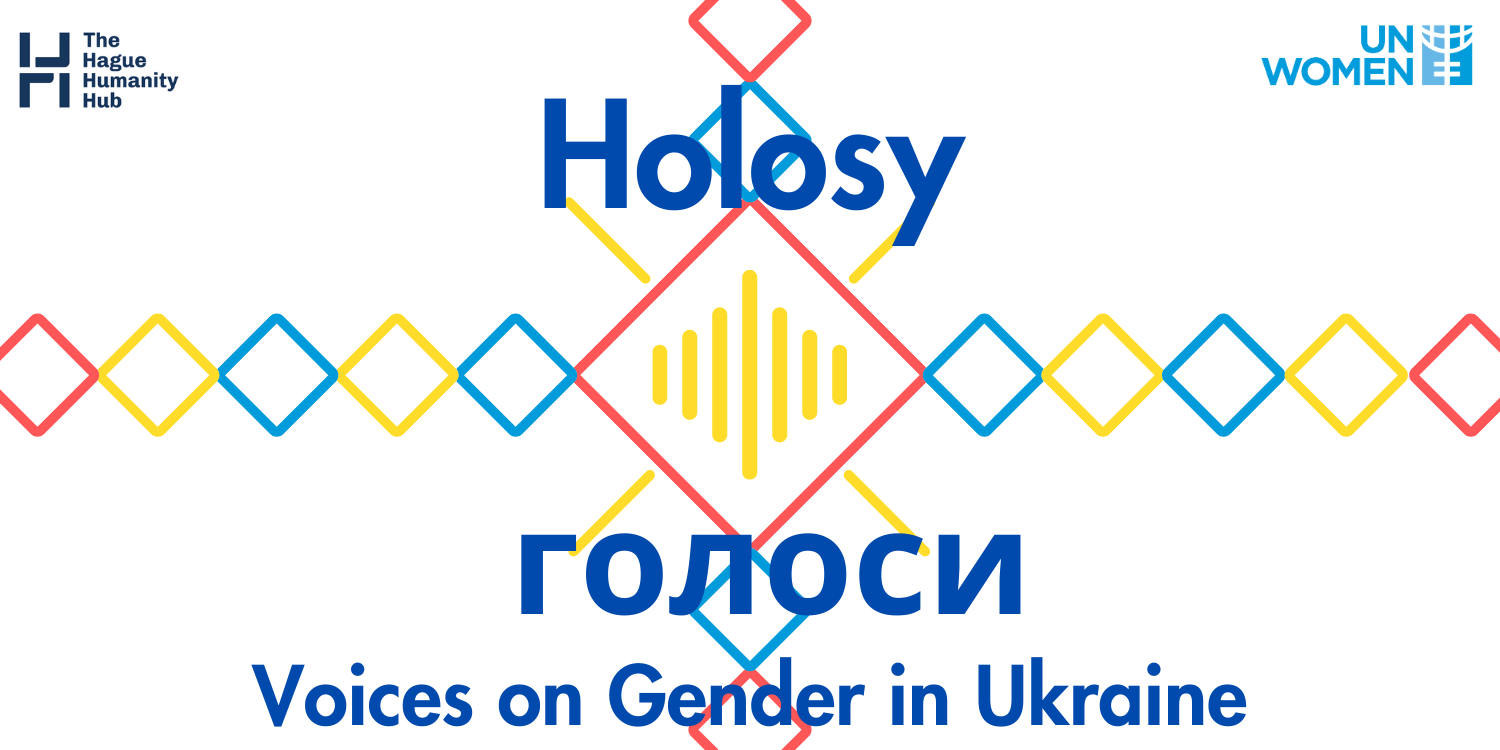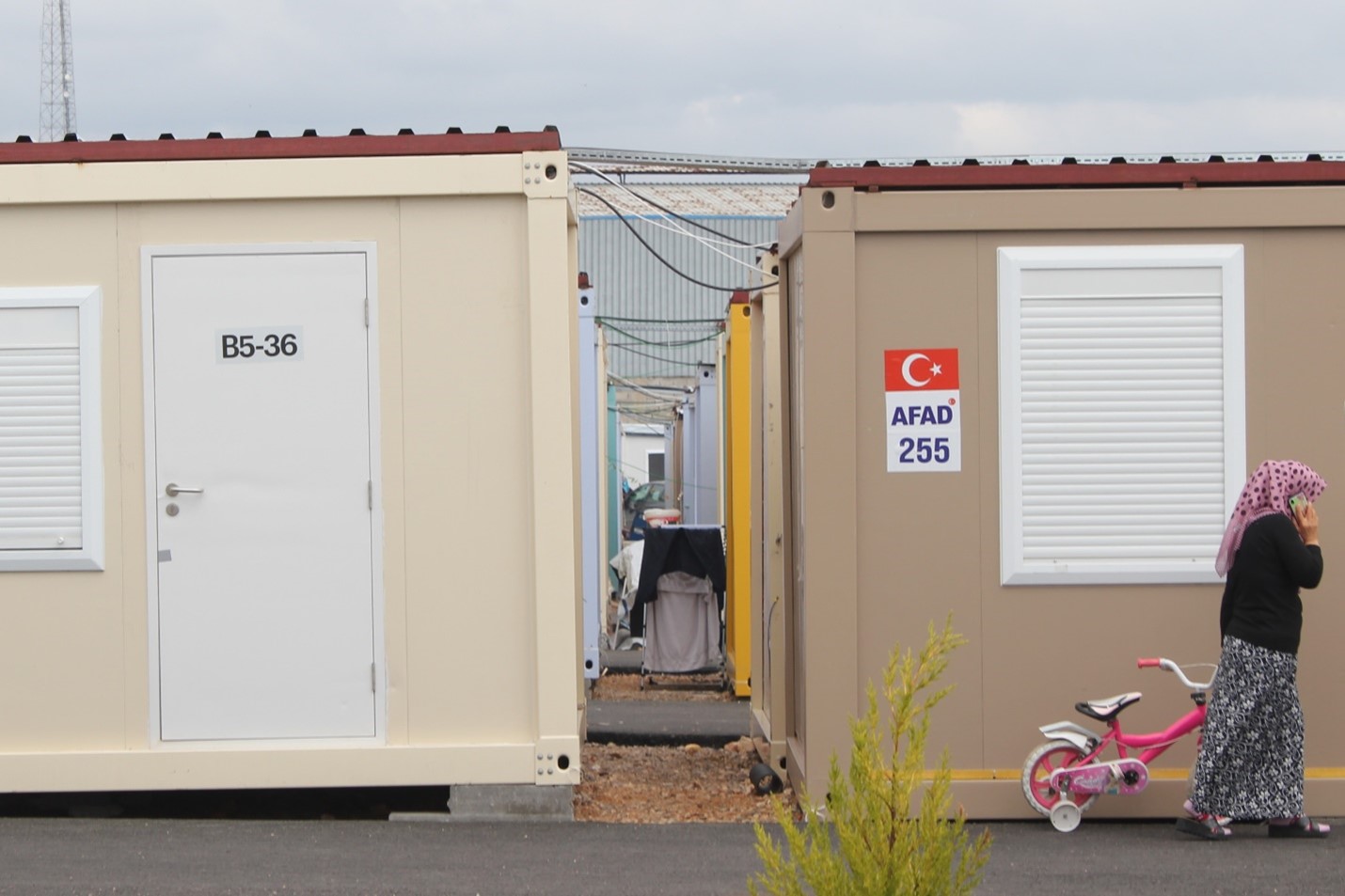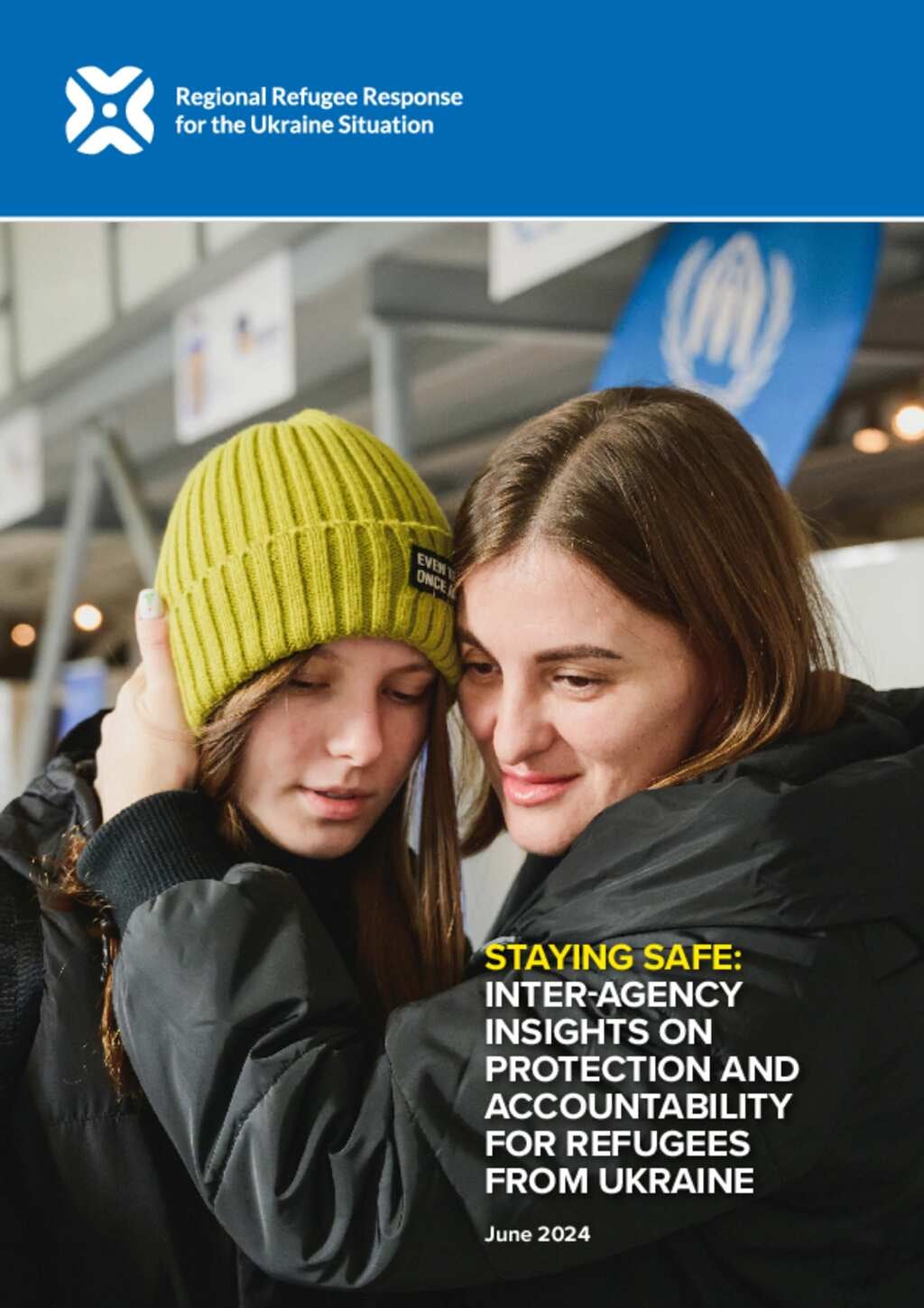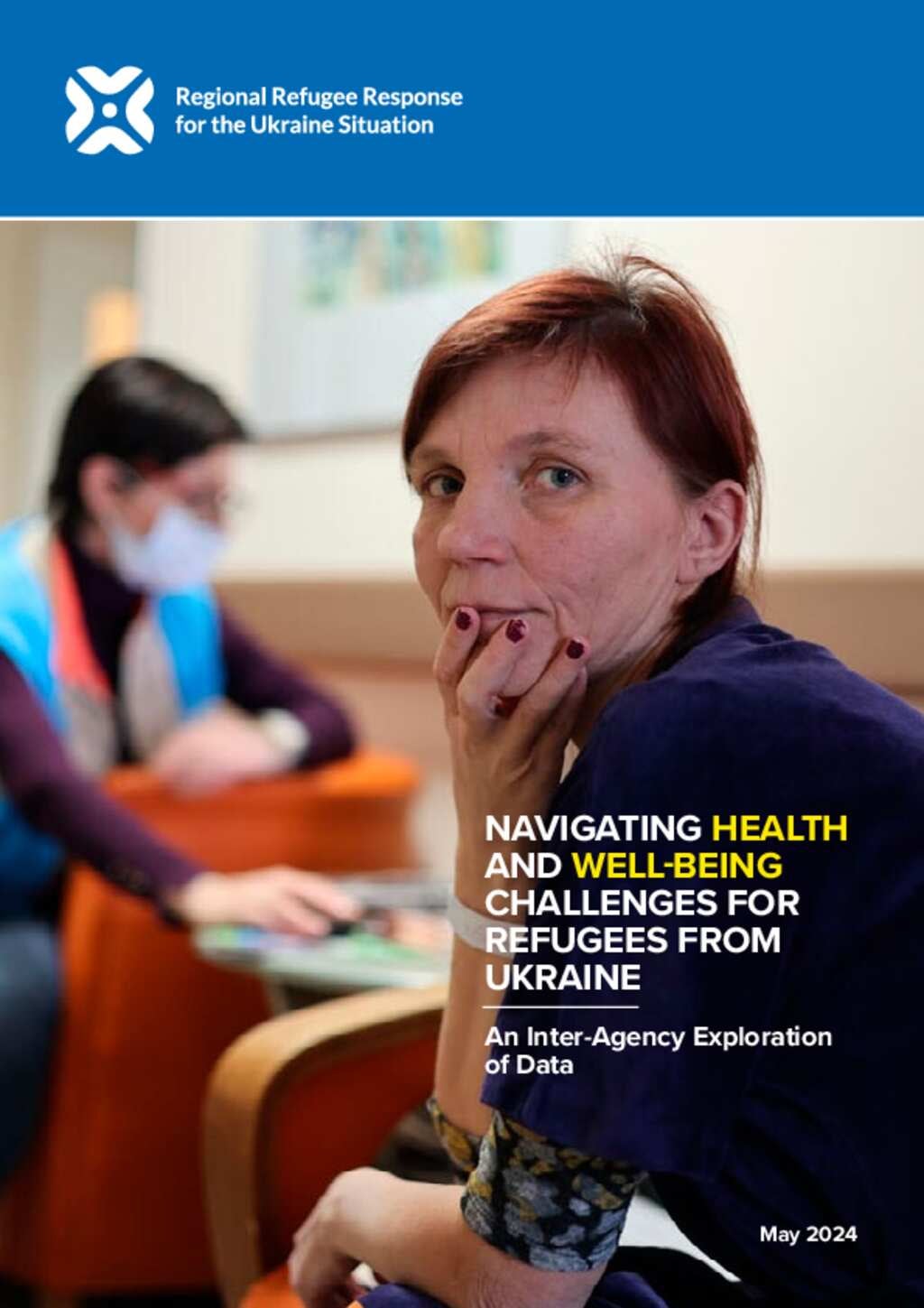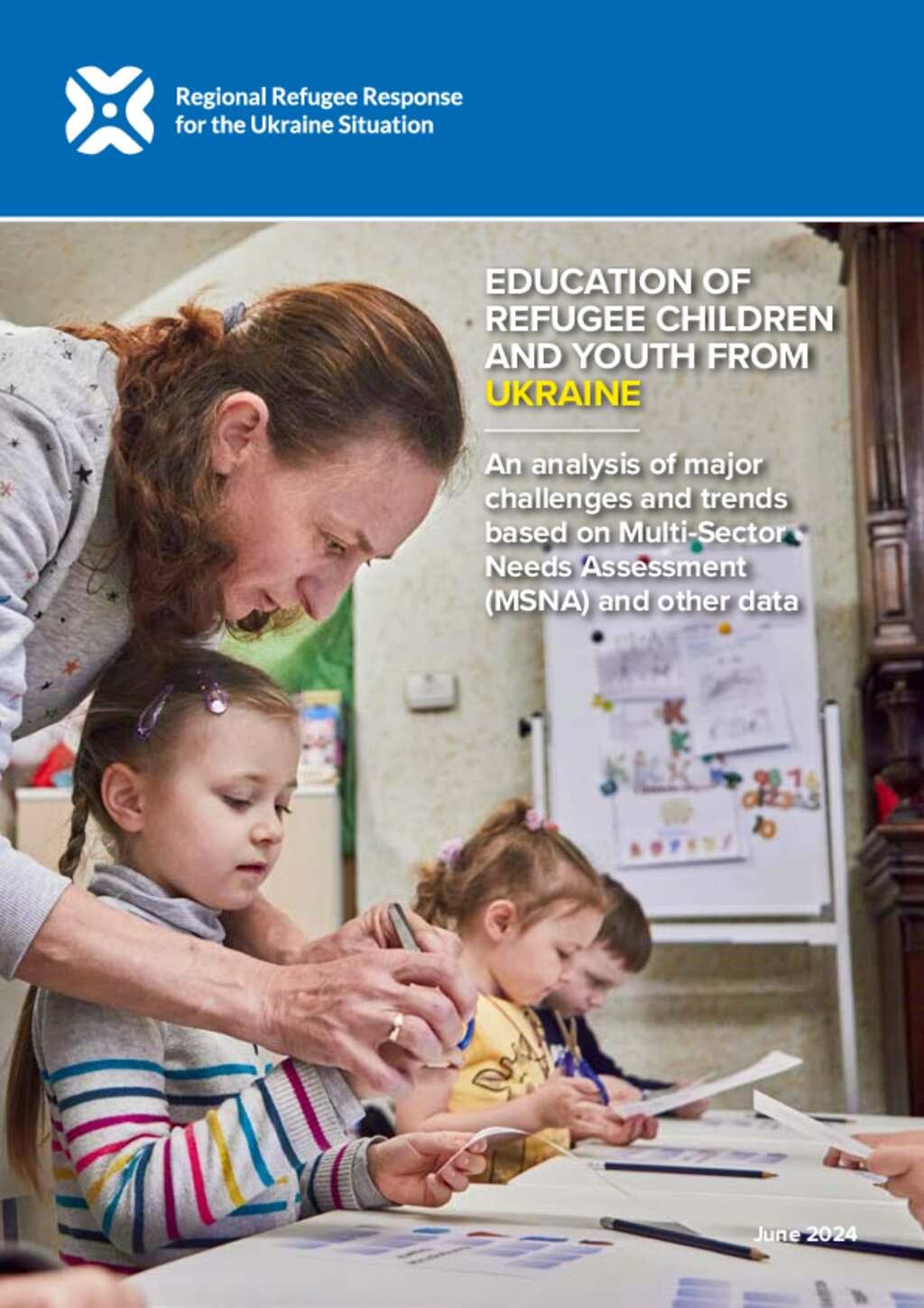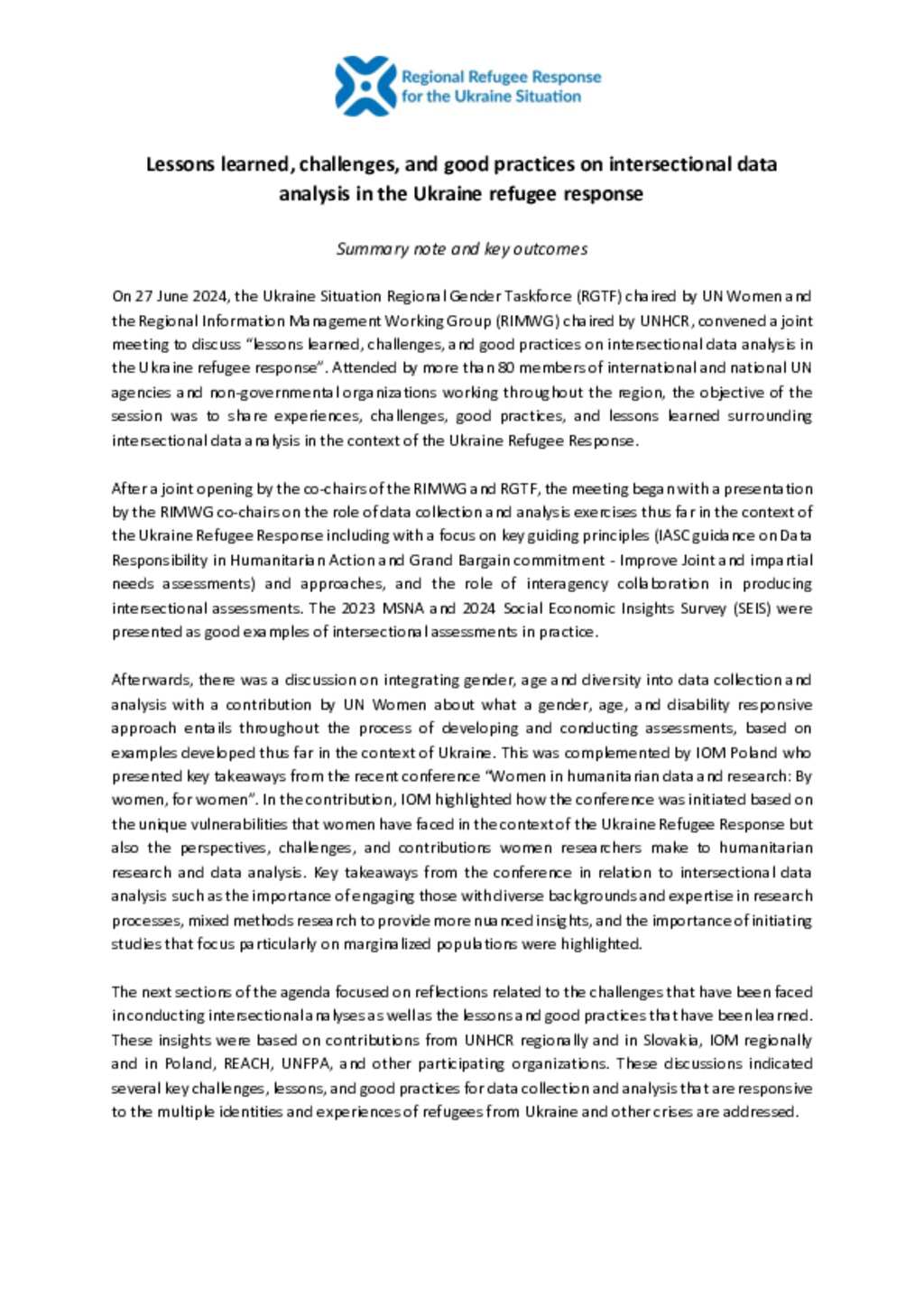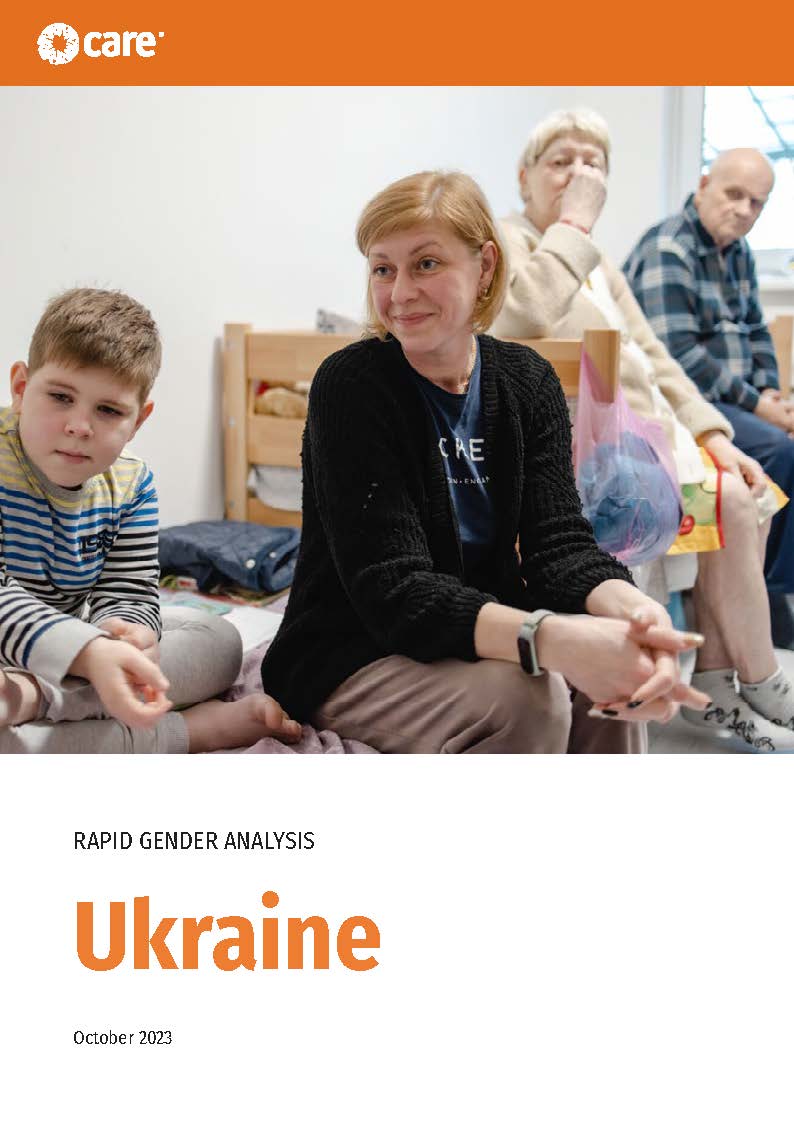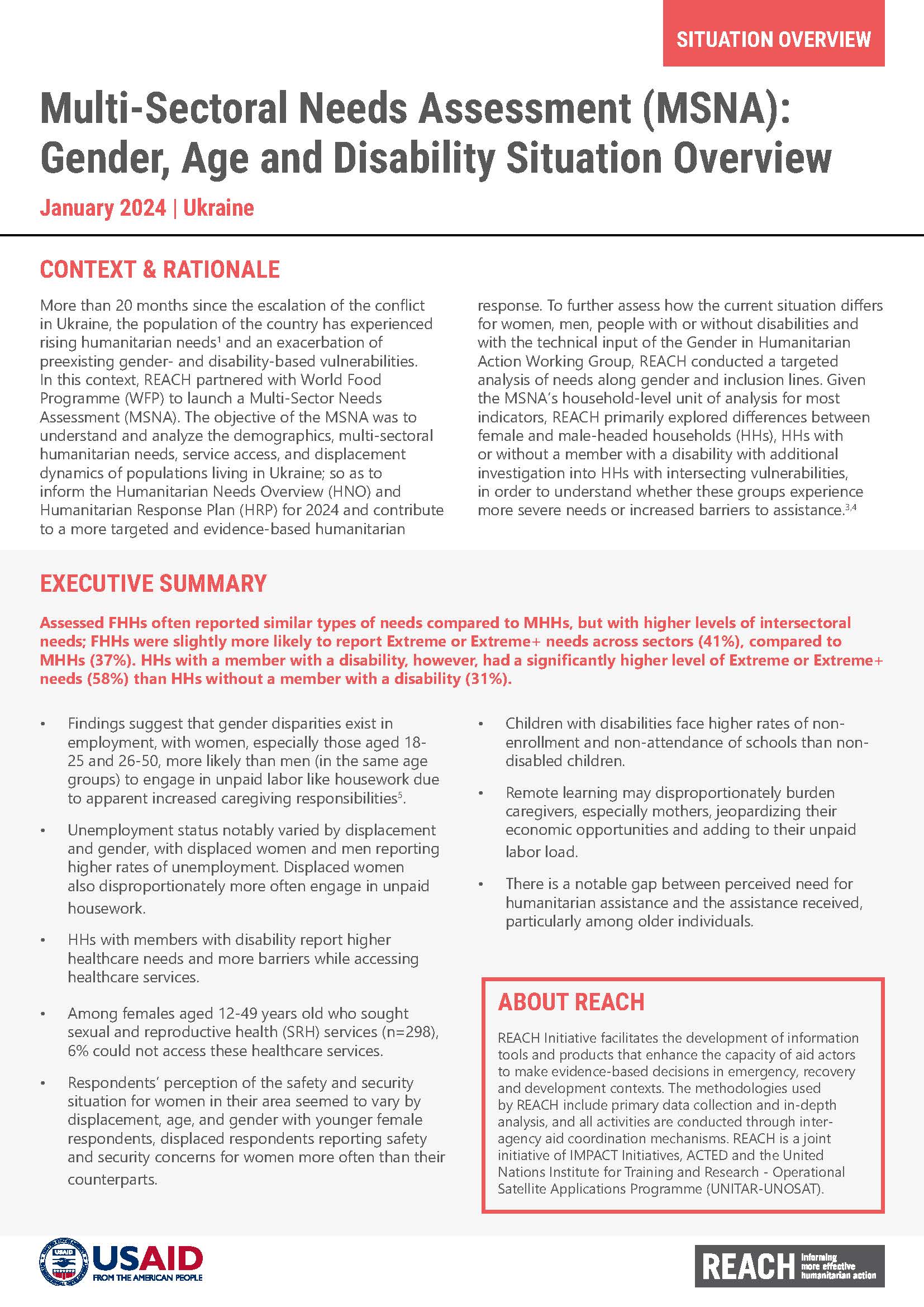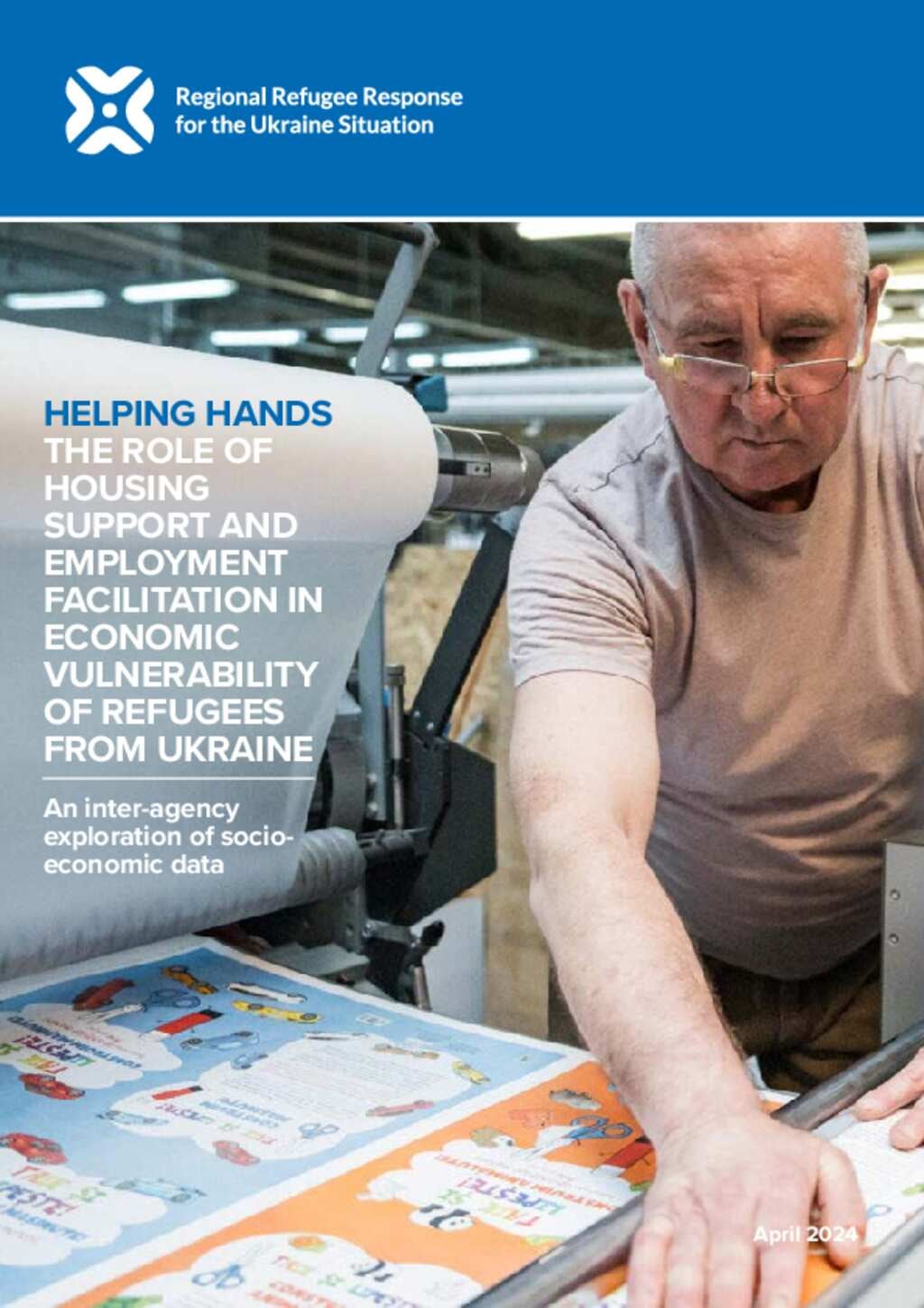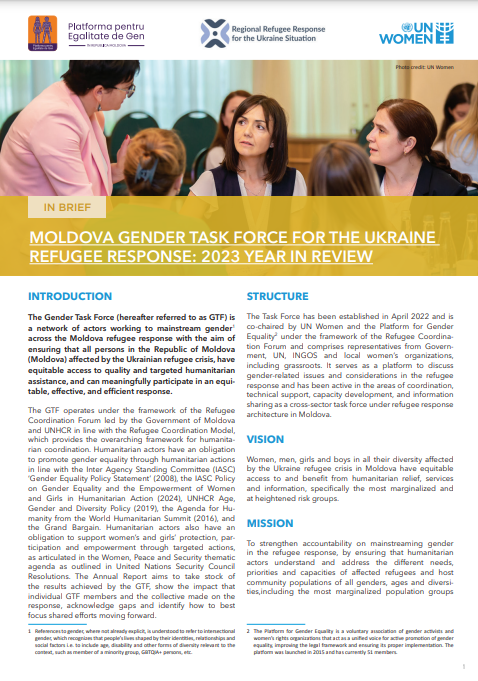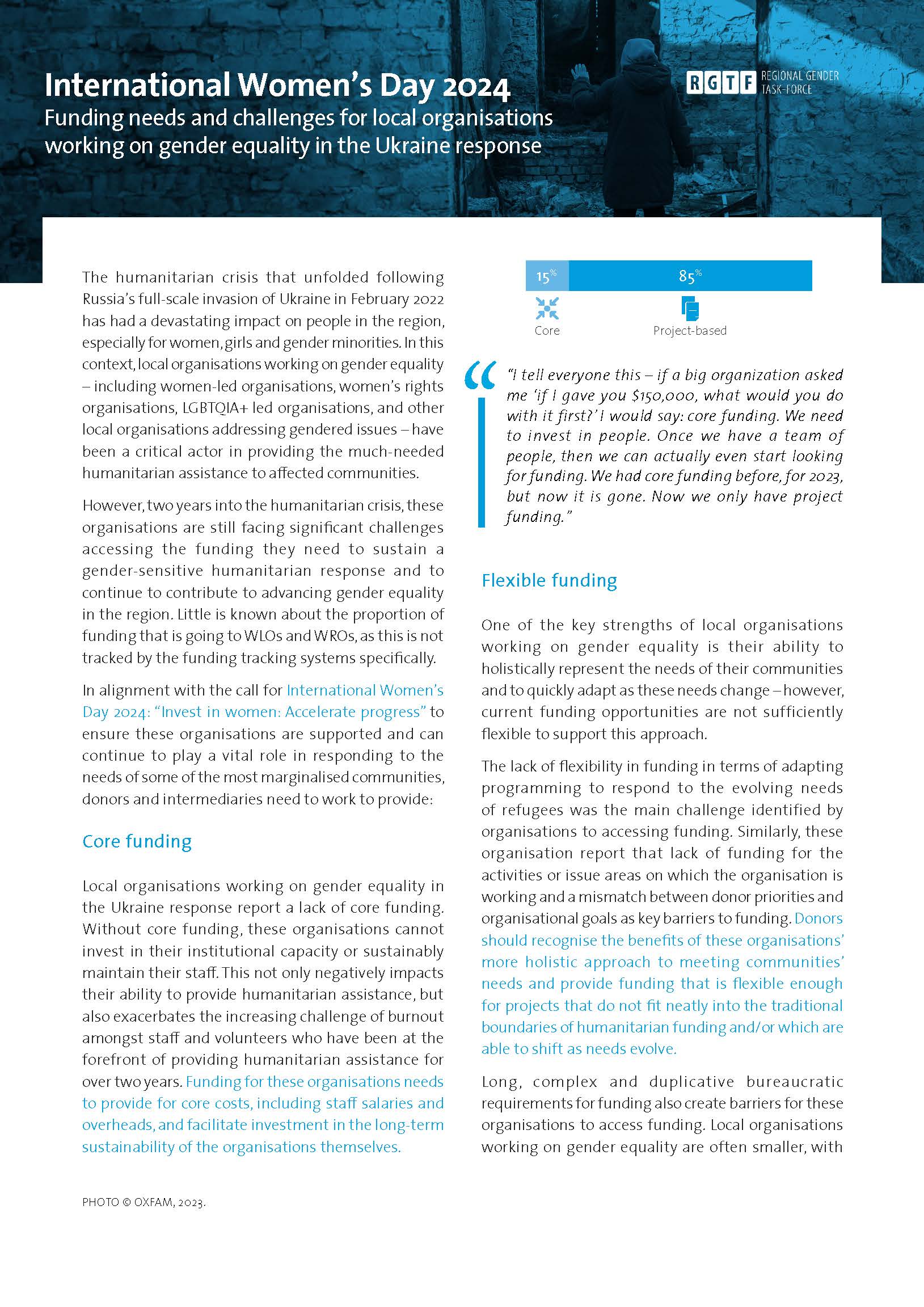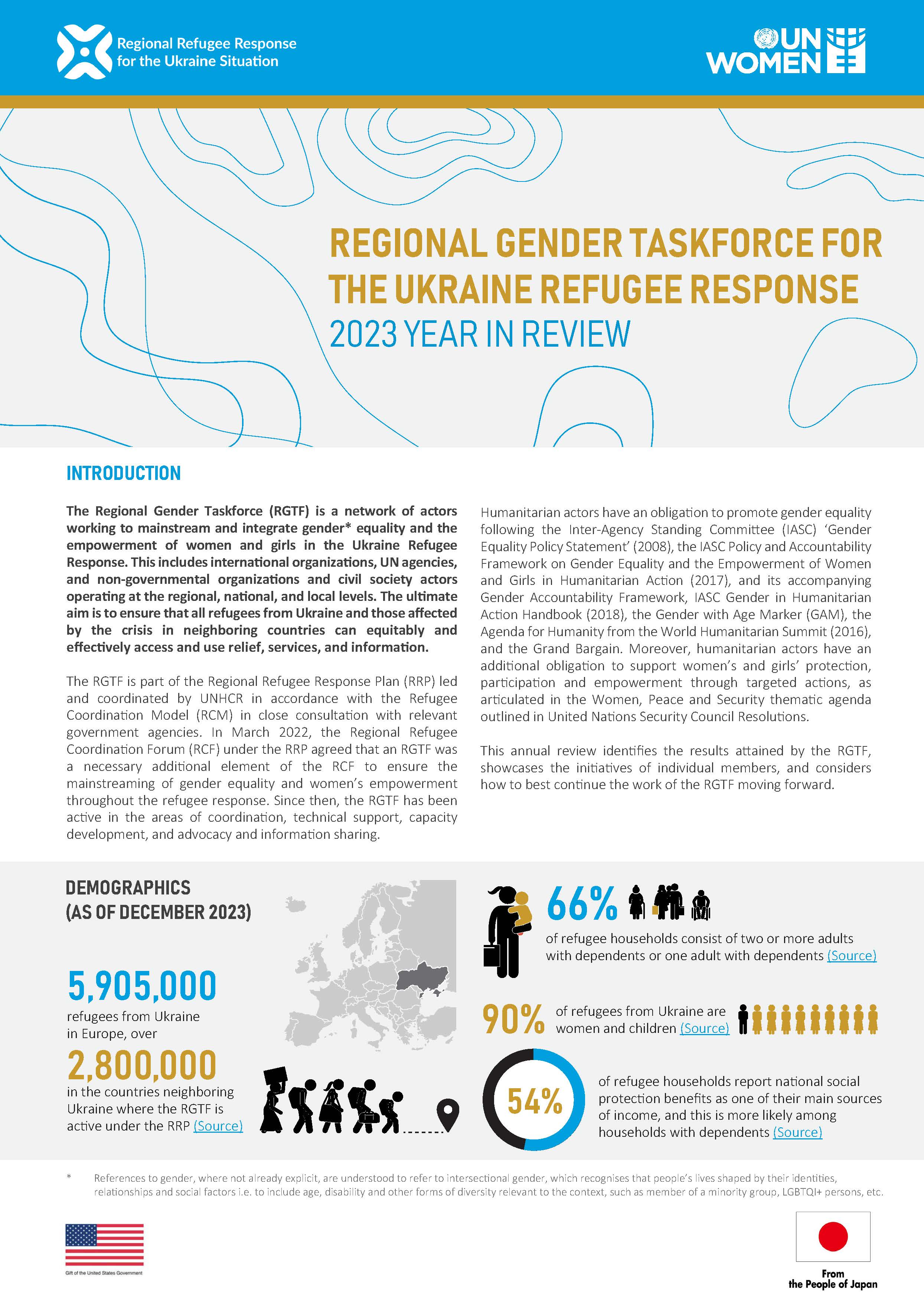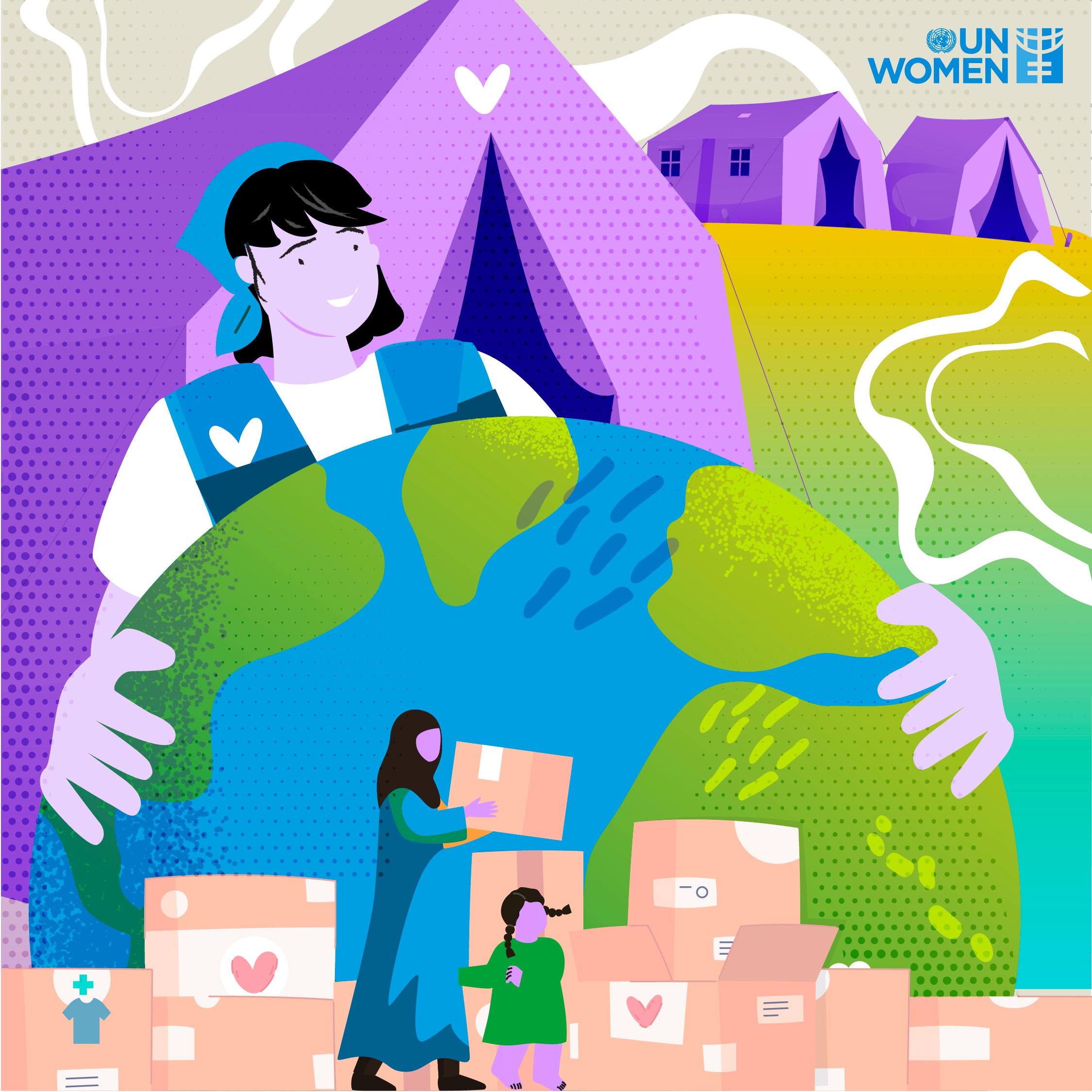
About | Supporting Women's Leadership | Gender-Data Production | Gender-Responsive Humanitarian Action
Today, we face a global humanitarian challenge. From Russia's invasion of Ukraine to Türkiye's post-earthquake recovery, human suffering has reached alarming levels, with women and girls being disproportionately affected. Yet, when it comes to humanitarian assistance, gender equality is not the priority.
make up half of all refugees globally3
When crises strike, gender inequalities are often exacerbated. These include, increased levels of gender-based violence, exclusion from life-saving services and decision-making processes due to discriminatory social norms, such as food hierarchies, and limited mobility to get help due to physical insecurity.
Women are often the first responders to a crisis, and play a central role in the survival and resilience of their families and communities. When women lead, the entire community benefits. Local women's groups are also often best placed to mobilize change and respond to crises.
UN Women in Europe and Central Asia focuses on delivering humanitarian response through local partners, collecting and publishing essential data, and coordinating efforts among UN agencies and partners.

UN Women collaborates with local women's organizations and women-led organizations to provide effective humanitarian assistance, it addresses the unique challenges faced by women and girls in crisis situations. By working closely with local partners, UN Women strengthens community-based responses and empowers women on the ground. Women's leadership is a cornerstone of this approach, as it not only ensures that women's voices are heard and their needs are met, but also fosters resilience and recovery within communities.
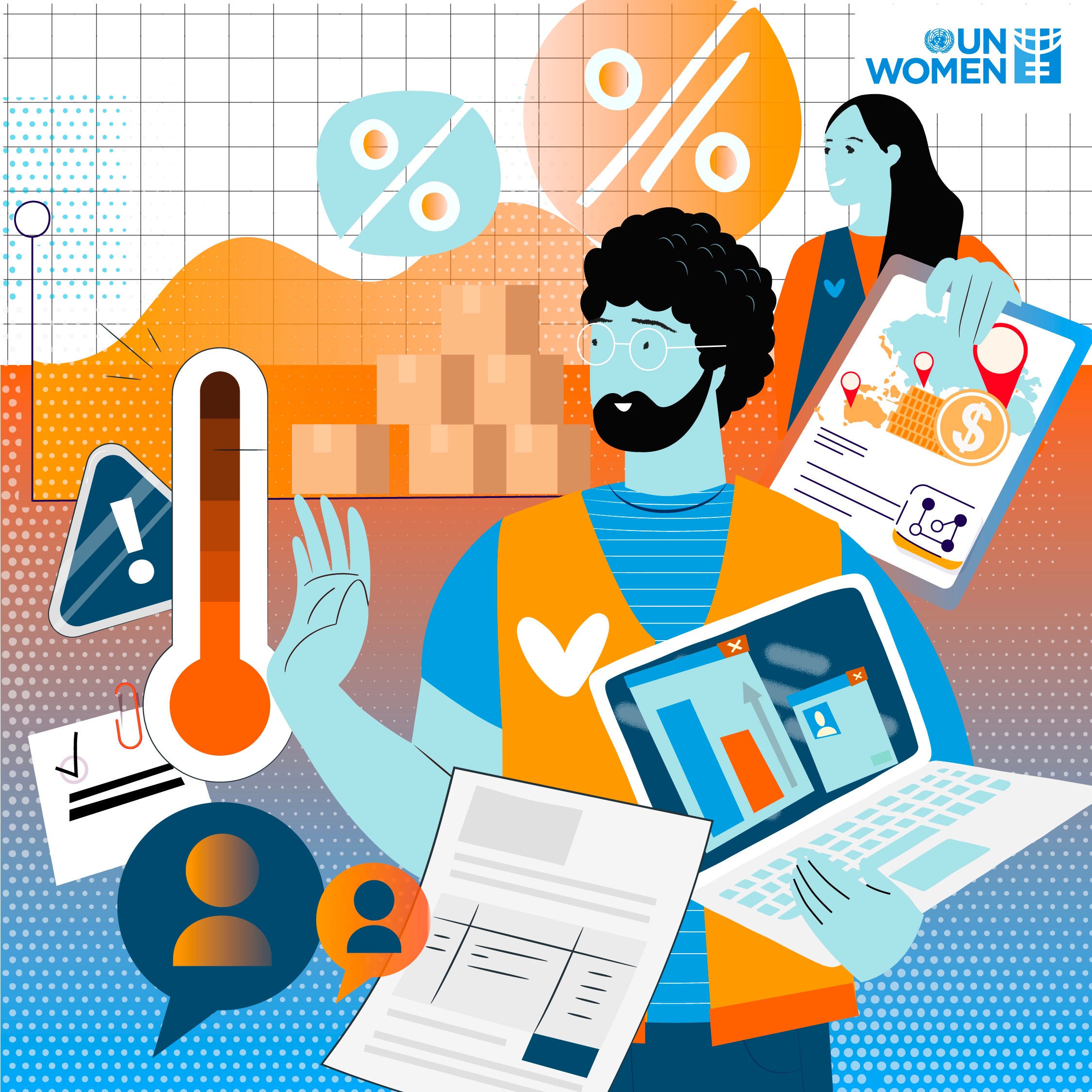
Data collection and dissemination are vital components of UN Women's work in the region. By gathering accurate and relevant data, UN Women helps inform policies and programs that address the unique needs of women and girls in humanitarian settings. This data highlights the impact of crises on gender equality, guiding targeted interventions.
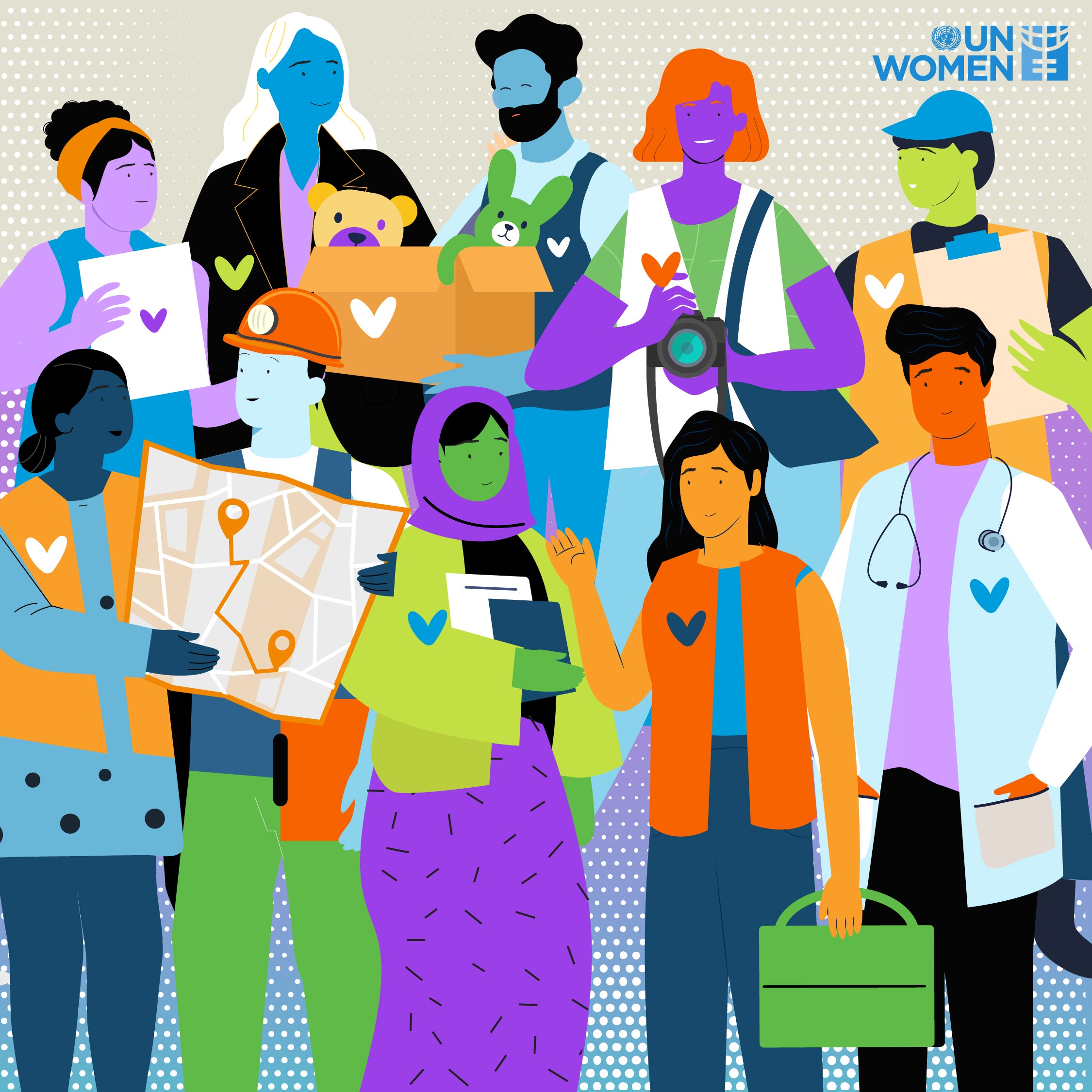
Coordination is key to effective humanitarian response. UN Women plays a pivotal role in ensuring that gender considerations are integrated into all aspects of humanitarian planning, implementation, and evaluation. By advocating for gender equality and the empowerment of women and girls, UN Women helps to ensure that responses are gender-responsive, addressing the specific needs and contributions of women and girls in crisis-affected areas.
